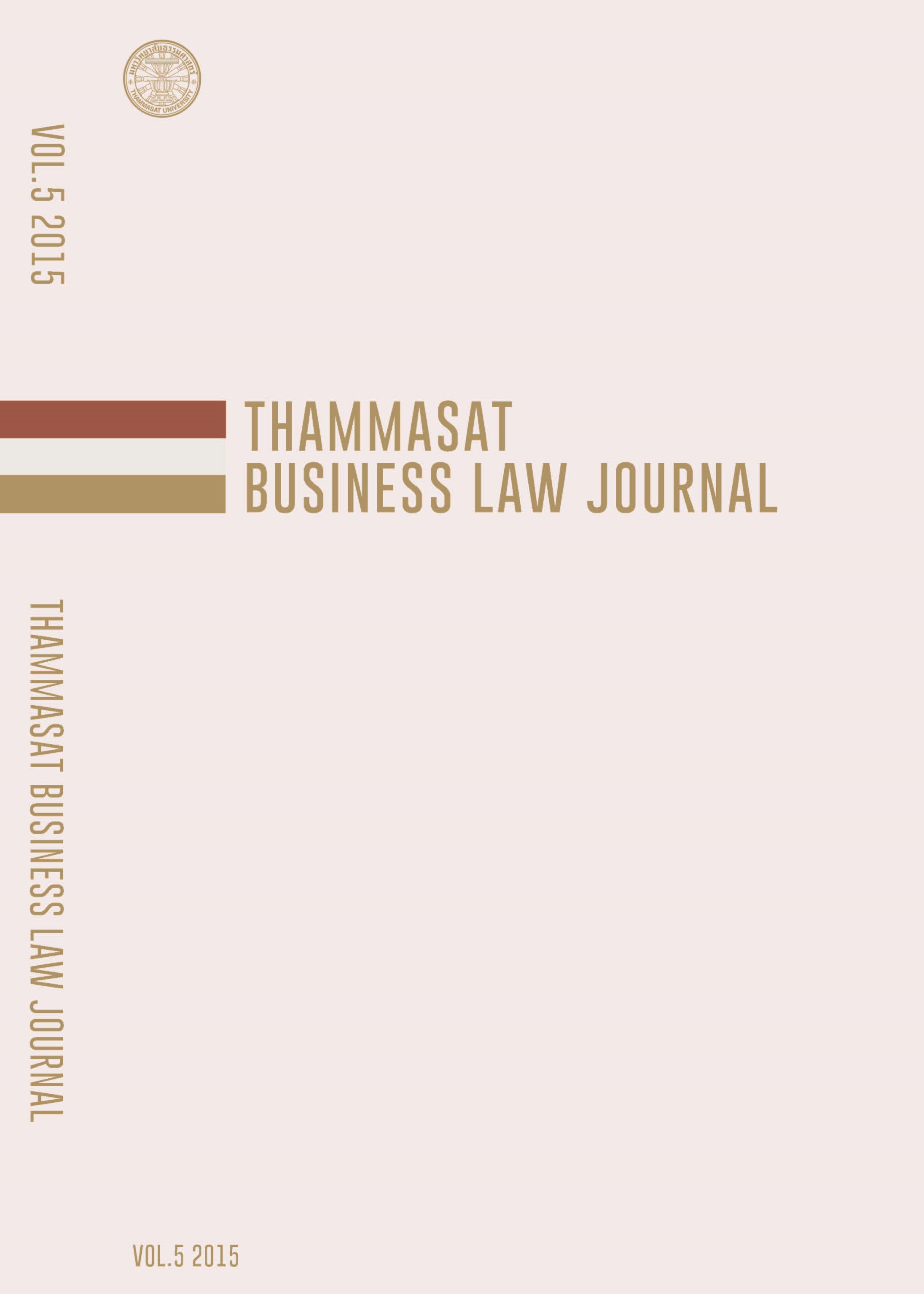LEGAL MEASURES FOR CONTROLLING RECREATIONAL SCUBA DIVING BUSINESS IN THAILAND
Main Article Content
Abstract
Many dive sites in Thailand are always ranked as top dive sites of the world because of the beauty and diversity of coral reefs, fishes and many more marine lives. The underwater world of Thailand can attract more than hundred thousand tourists each year to travel and discovery. Scuba diving industry is growing up and earning huge amount of income. However, growing of scuba diving business has caused many problems. Generally, problems are involved in public safety, human resources, and natural resources.
One major reason is that Thailand is not well-experienced in this field of business; therefore, Thai laws and legal measures may not be efficient to organize and control this business. The Tourism Business and Guide Act B.E. 2551 does not support tourism business license registrations of every scuba diving business. Moreover, without governmental organizations having experts in scuba diving to control and inspect quality of scuba diving operators and professionals and to lay down recreational scuba diving standards or policies, low quality services have caused scuba diving accidents.
In case of environmental protection, some dive areas outside national parks are not being legally protected on marine wildlife collection and feeding while scuba diving. There is also no limitation of diver in such areas that causes the over usage of marine resources. Besides, some diver-attractive animal are not under protection of any law even they are the highlight of scuba diving in Thailand.
This article aims to focus on legal measures of the United States, Australia and the Philippines which are used to conduct recreational scuba diving business, protect public safety, and protect natural resources in order to provide recommended ways that may be able to use to prevent problems from scuba diving business in Thailand.
Article Details
References
Interview with three dive instructors, January 17, 2015, March 2-3, 2015 and May 3, 2015.
Interview with a registrar of the Bureau of Tourism Business and Guide Registration Southern Area 2, Department of Tourism, December 26, 2014.
Interview with an officer of the Bureau of Tourism Services Development, Bangkok, Department of Tourism, February 4, 2015.
บริษัท แบรนด์ เมทริกซ์ รีเสิร์ช จํากัด. โครงการศึกษาสถานการณ์และแนวโน้มด้านการตลาด สำหรับการท่องเที่ยวกลุ่มดำน้ำ. รายงานขั้นสุดท้ายนำเสนอต่อการท่องเที่ยวแห่งประเทศไทย. กรุงเทพมหานคร: บริษัท แบรนด์ เมทริกซ์ รีเสิร์ช จำกัด, 26 กรกฎาคม 2554. Brand Matrix Research Co., Ltd. Study Project on Situation and Market Trend of Diving Tourism. Final report submitted to Tourism Authority of Thailand. Bangkok: Brand Matrix Research Co., Ltd., July 26, 2011.
Australian Government, Department of the Environment, Australia's network of Commonwealth Marine Reserves. “CAPAD: Protected Area Data”.
“Commonwealth Marine Reserves”.
Commonwealth of Australia. “Travel and Accommodation: An Industry Guide to the Australian Consumer Law”.
National Marine Protected Areas Center (NMPAC). “U.S. MPA Data from the MPA Inventory”.
Office of Ocean and Coastal Resource Management. “Analysis of United States MPAs, March 2012”.
Queensland Government. “Codes of Practice”.
“Work Health and Safety Act 2011, Work Health and Safety Regulation 2011”.
กรมทรัพยากรทางทะเลและชายฝั่ง, ระบบฐานข้อมูลกลางและมาตรฐานข้อมูลทรัพยกรทางทะเลและชายฝั่ง. “ความหลากหลายในแนวปะการัง” (Department of Marine and Coastal Resources, Central Database System and Data Standard for Marine and Coastal Resources. “Diversity in Coral Reef”).
สำนักงานเลขานุการสภาผู้แทนราษฏร, สรุปผลการประชุมอนุกรรมาธิการปฏิรูปการจัดการทรัพยากรทางทะเลและชายฝั่ง ครั้งที่ 6, 25 ธันวาคม 2557, กรุงเทพมหานคร: สำนักงานเลขานุการสภาผู้แทนราษฎร, 2557 (The Secretariat of the House of Representatives, Minutes of the Coastal and Marine Resources Reform Sub-Committee no. 6, December 25, 2014, Bangkok: The Secretariat of the House of Representatives, 2014.


